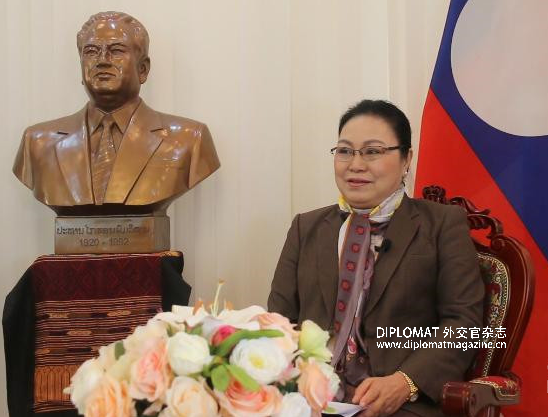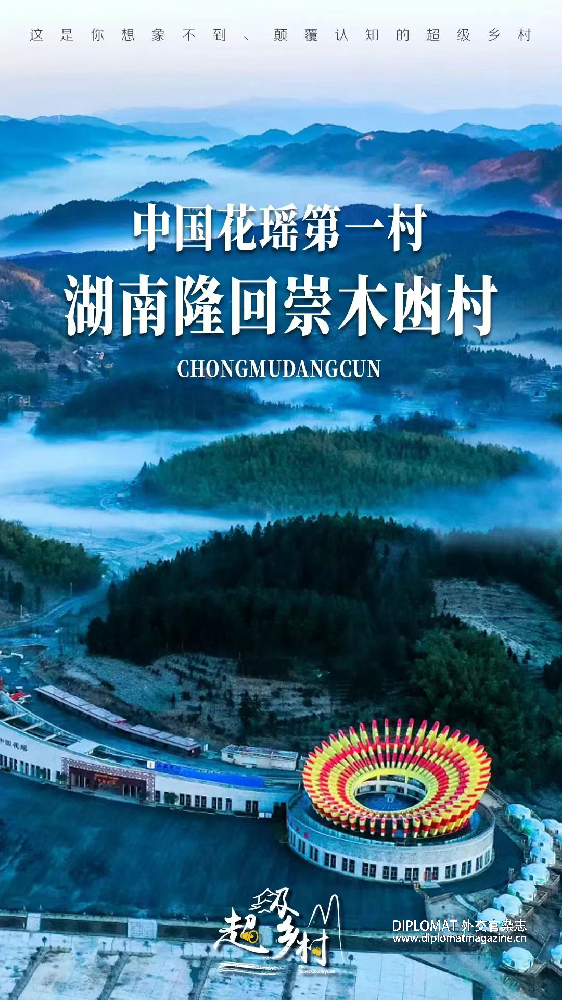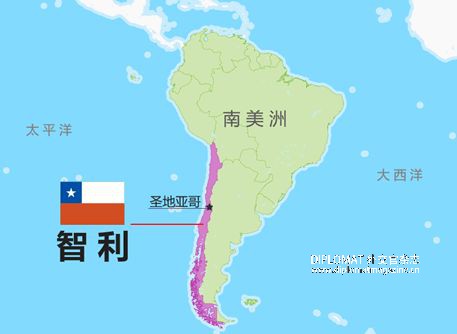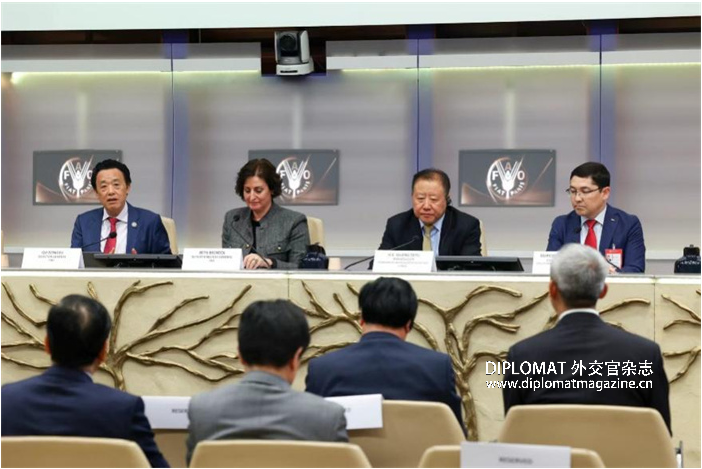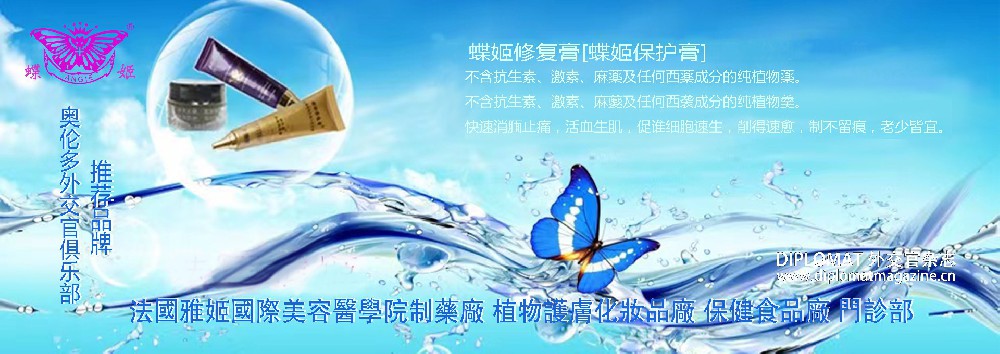导语:By:Dilfuza TuraevaPhD candidateSchool of International Relations and Public AffairsShanghai International Studies University
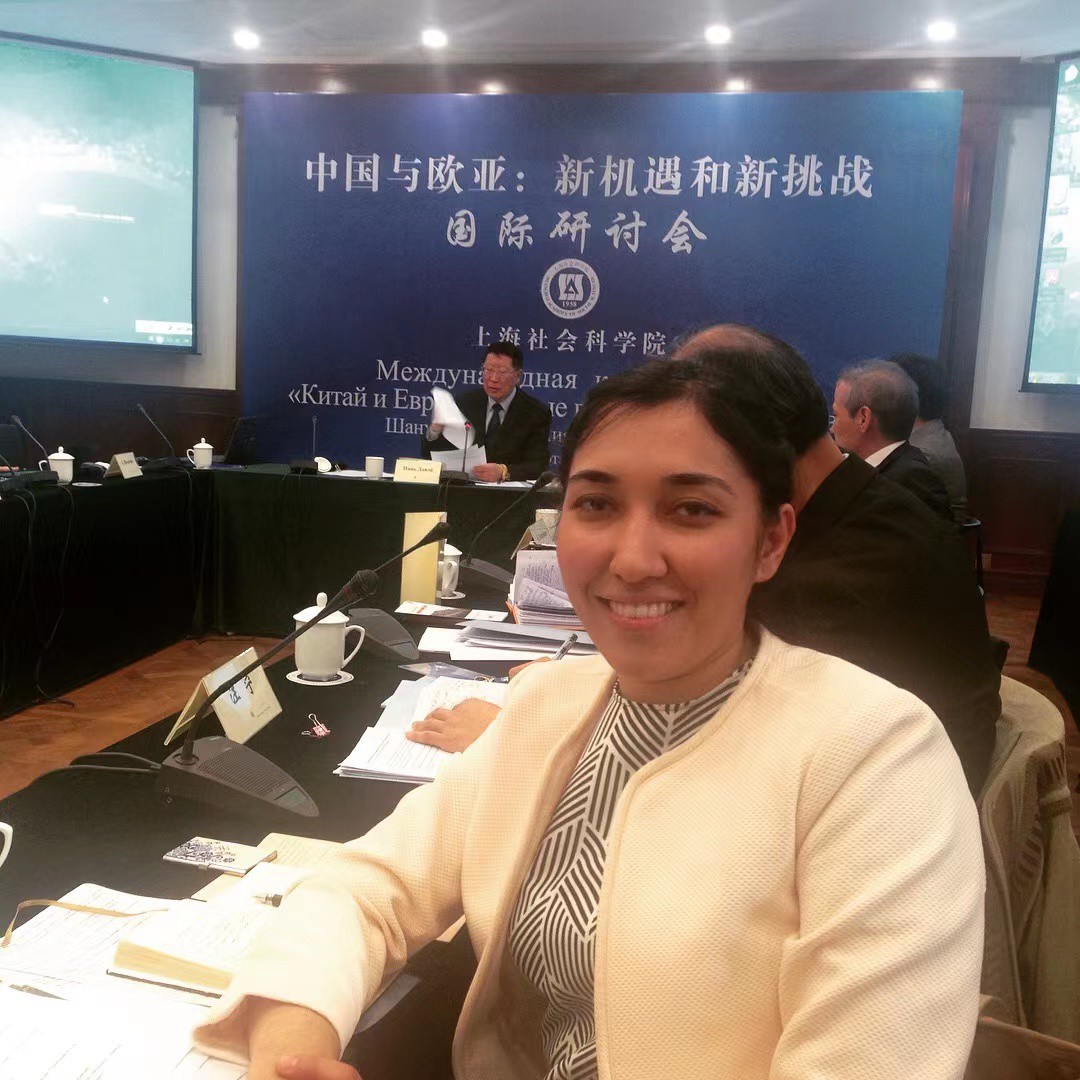
Since its announcement in 2013 the content of the Belt and Road Initiative (BRI) has evolved. As a component of BRI, “Digital Silk Road” (DSR) concept has enjoyed the substantial support by many countries. Uzbekistan has taken significant steps on the way of digitalization of its economy and strongly intended to enlarge cooperation with China experiencing great advancements in the field of digital development and as the leader of the DSR. This article researches potentials of interaction between Uzbekistan and China in the sphere of digitalization and what opportunities “Digital Silk Road” offer in intensifying that cooperation. The methodology applied in this research is comparative analysis as well as descriptive analytical methods.
Concept of the “Digital Silk Road” as technological dimension of the BRI
Concept of the “Digital Silk Road” was proposed by President Xi Jinping in his speech at the opening ceremony of the first “Belt and Road” International Cooperation Summit Forum in 2017 in Beijing to “adhere to innovation-driven development and strengthen cooperation in cutting-edge fields such as digital economy, artificial intelligence, nanotechnology, and quantum computers, and promote big data, cloud computing, and smart cities, and connect them into the "Digital Silk Road" of the 21st century”. DSR is considered as the technological dimension of the BRI that aims to improve digital connectivity in Belt and Road countries.
Digital cooperation has become a focus of countries co-building the “Belt and Road”, and its commercial applications have experienced unprecedented development and growth in the past decade. The countries of Central Asia are interested in cooperation within the “Digital Silk Road” which together with increased cooperation with China play an important role in stimulating the positive development of this region. By providing each other with their transport corridors and sales markets, as well as exchanging investments, resources and technologies, China and the countries of Central Asia are making joint efforts to ensure their sustainable development.
In recent years, Uzbekistan has witnessed remarkable progress in digital development. The national government is adopting the policy of intensive integration of technology and innovation for economic diversification, job creation and social transformation. Initiatives such as developing digital infrastructure, promoting e-commerce, and establishing digital innovation hubs have impelled the republic toward a digitally empowered future. In Uzbekistan it is comprehended that digitalization of the economy is an important driving force for economic growth that plays an increasingly prominent role in global economic development. Along with other countries around the world Uzbekistan is seizing digital opportunities by formulating digital transformation plans to accelerate the digitalization of its economy and society.
Over the last few years Uzbekistan and China cooperation has expanded in the fields of digital technology, digital infrastructure, and digital markets under "connectivity" to the in-depth cooperation within "Digital Silk Road". Taking advantage of the opportunity of the construction of the DSR, China is helping Uzbekistan to build digital infrastructure and accelerate the digital transformation of related industries, while also creating new opportunities and growth points for its economic development. At the same time, the construction of the “Digital Silk Road” promotes all-round exchanges and cooperation between countries and is aimed to effectively narrow the digital divide.
China and Uzbekistan’s background for digital cooperation
Innovation and the “Digital Silk Road” are moving to the forefront of Beijing’s efforts to develop the Belt and Road Initiative. At the Leaders' Roundtable of the Second Belt and Road Forum for International Cooperation in April 2019 President Xi Jinping spoke of cooperation in the “digital economy” and “innovation-driven development” as priority areas for the BRI. The DSR is becoming a significant part of Beijing’s overall BRI strategy, under which China provides aid, financial support, and other assistance to recipient states. DSR also provides hold up to Chinese exporters, including many well-known Chinese technology companies. By 2020 the “Digital Silk Road” had become a focal point of China’s foreign policy, and president Xi Jinping has continued to promote the idea of cooperation on digital connectivity. As of the end of 2022, China has signed "Digital Silk Road" cooperation memorandums of understanding with 17 countries and e-commerce cooperation memorandum with 30 countries.
In recent years, the scale of China’s digital economy ranks second in the world, and the number of Internet users, online retail transaction volume, and mobile Internet development level are all among the best in the world. Total FDI and loans on “Digital Silk Road” projects are growing fast, in line with the rising importance of the IT sector for the Chinese economy. The State Council’s “National Information Strategy” (2016 - 2020) called upon China’s thriving private tech giants of the digital economy – Alibaba, Tencent and Baidu – to support the “Digital Silk Road” while becoming global leaders in areas like e-commerce and mobile payments.
Chinese companies in the digital sphere have implemented 1,334 overseas investment and cooperation projects in the past two years, 57% of which have been associated with the DSR. The push to develop the DSR has involved state-backed telecom carriers as well as privately owned technology companies.
The Chinese government and companies are investing in the deployment of fiber optic cables, 5G and cloud technologies, and significant resources in the development of the industrial Internet, artificial intelligence, blockchain, nanotechnology and smart cities. Today, China is involved in digital infrastructure projects in approximately 80 countries and has already invested approximately $80 billion in “Digital Silk Road” projects around the world.
The DSR assistance goes toward improving recipients’ telecommunications networks, artificial intelligence capabilities, cloud computing, e-commerce and mobile payment systems, smart cities, and other high-tech areas. Such technologies are in substantial demand in Central Asia states which need inexpensive, high-quality technology to expand their digital economic sector. Today, Central Asia accounts for about 84 completed and planned “Digital Silk Road projects”. Of these, 26 are in Uzbekistan.
Over the last few years Uzbekistan has focused on the process of transition to the digital economy. In this regard, in his Address to the Oliy Majlis of the Republic of Uzbekistan the President Shavkat Mirziyoyev set the task of a radical turn in the development of the “digital economy,” namely: to create an electronic platform for scientific achievements; establish a base of domestic and foreign scientific developments; completely digitalize the spheres of construction, energy, agriculture and water management because food security is one of the main factors in the stability of the socio-economic development of the state. Moreover, the Uzbek leader pointed that “mastering digital knowledge and advanced information technologies gives the country the opportunity to take the shortest path to growth,” thereby confirming a firm goal of transition to a digital economy over the next decade. In particular, the Decree of the President of the Republic of Uzbekistan dated October 5, 2020 “On the approval of the strategy “Digital Uzbekistan-2030” and Measures for its effective implementation” provides “implementation of over 220 priority projects that include improving the e-government system, further developing the domestic market for software products and information technologies, organizing IT parks in all regions of the republic, and providing this area with qualified personnel.
Until 2020 digitalization process in Uzbekistan developed slowly. As the main reason for this according to the analysis of the consulting service "ERGO Research & Advisory" is the underdeveloped telecommunications infrastructure and communications. As a result of insufficient investment in the development of this sector, Internet and mobile services did not perform as expected, which led to a slowdown in the growth of the digital economy and digital disruption.
However, the share of the digital economy in Uzbekistan’s GDP in 2022 increased from 1.99 percent to 2.77 compared to 2020. New steps towards strengthening of infrastructures of e-commerce were also achieved. According to the E-Government Development Index (EGDI) - compiled by the Department of Economic and Social Affairs of the UN Secretariat - Uzbekistan improves its performance annually and took 69th place (2022) in the ranking among 193 states, compared to 87th in 2020.
Of course, more tasks in this field are to be achieved in Uzbekistan within the decade of digital economy up to year 2030. According to experts, the introduction of advanced technologies will bring unique changes to each industry, such as: 1) an increase in productivity by 20-30%; 2) reducing the number of accidents in transport by 80%; 3) reducing costs in medicine by 30%; 4) increase in agricultural productivity by 15%. This situation opens up enormous opportunities and prospects for cooperation between Uzbekistan and China within the framework of “Digital Silk Road”.
Prospects of cooperation within “Digital Silk Road”
China and Uzbekistan have a good foundation for jointly building the “Digital Silk Road”. The two sides have established a relatively stable and long-lasting relationship of mutual trust. Both have proposed digital economic development strategies and have multi-level cooperation mechanisms. Furthermore, heads of both states stand for in-depth cooperation in this sphere.
In April 2019, at a meeting between President Shavkat Mirziyoyev and Chairman Xi Jinping, the leaders of the two countries discussed the prospects for attracting investment, innovation and technological cooperation in Uzbekistan, and also proposed the development of new joint projects in these areas. In the framework of such cooperation in September 2022, heads of China and Uzbekistan issued a joint statement, in which they agreed to actively push forward the synergy between the Belt and Road Initiative and the development strategy of "New Uzbekistan" for 2022-2026. Uzbekistan's course to boost transition to a green economy, digital and innovative development have opened new opportunities for expanding areas of Uzbek-Chinese cooperation.
In May 2023, at the China-Central Asia Xi'an Summit, the President of Uzbekistan especially noted that “issues of deepening industrial cooperation, attracting digital technologies and introducing innovations can be effectively resolved through direct interregional contacts with the provinces of China.” In turn, Chinese President Xi Jinping emphasized that “China welcomes Central Asian countries to participate in special cooperation programs under the Belt and Road Initiative, including programs on sustainable development technologies, innovation and start-up, and spatial information science and technology”. On the sidelines of the summit the two leaders agreed “to accelerate the development of digital trade, promote further measures to increase bilateral trade volume, explore new growth points for trade cooperation”.
In order to implement the agreements between the leaders of Uzbekistan and China in October 2023 the Memorandum of cooperation was signed between the Ministry of Digital Technologies of Uzbekistan and the Ministry of Industry and Information Technologies of the People’s Republic of China in Beijing, aiming to fortify the cooperation in the fields of information and technology. The meeting was held at the sideline of the 3rd Belt and Road Forum for International Cooperation. According to the memorandum, the parties agreed to cooperate in the field of infrastructure interconnection, communication network construction, 5G, network security, and information and communication technologies.
As part of these initiatives of the leaders of the two countries, ICTWEEK 2023 was held in Tashkent on October 24-27, 2023. Chinese “Huawei” company became an active participant in the main events of the week, including the ICT EXPO 2023 exhibition, forums on Artificial Intelligence, Investments in the IT sector, and the Central Asian IPv6 summit. “Huawei” strives to continuously develop talent in the field of ICT in Uzbekistan through a number of educational programs, such as Seeds for the Future, ICT Academies, and ICT Competition.
As the e-commerce is a basic element in building the "Digital Silk Road" and plays a decisive role in the digitalization of the economies, Chinese e-commerce giants such as Alibaba and JD.com have actively participated in the construction of the "Digital Silk Road". The Uzbekistan Export Promotion Agency established cooperation with Chinese e-commerce firm “Alibaba” in October 2020, creating a “Made in Uzbekistan” section on the Alibaba.com platform, where products of selected domestic companies are exhibited. The Uzbek government provides financial support for the registration of more than 300 local companies on the Alibaba.com platform. On August 9, 2023, the administration of Namangan region (eastern part of Uzbekistan) announced that “Alibaba” would open its regional center in Namangan. Today, AliExpress dominates cross-border e-commerce in Uzbekistan. In 2022, the e-commerce market in Uzbekistan achieved a remarkable milestone, reaching a size of $311 million. This signifies an almost fivefold growth over the past five years, solidifying its position as the fastest-growing e-commerce market in Central Asia.
Moreover, two research institutions affiliated to the Chinese Academy of Sciences (CAS) signed a Memorandum of Understanding (MoU) with the Science and Technology Information Center of the Ministry of Higher Education and Innovations of Uzbekistan in Tashkent, on October 11, 2023 to boost open science framework strategic cooperation. The two CAS institutions, the Computer Network Information Center (CNIC) and the Central Asia Drug Discovery and Development Center, agreed to build and promote the Silk-Road scientific data community on Science Data Bank (ScienceDB) and the Central Asia node of the Common Science and Technology Resource Identification (CSTR), together with their Uzbekistan counterpart. The CSTR platform (https://www.cstr.cn) provides unique identification services for global scientific data, academic papers, research institutions, researchers, research instruments, patents and other technological resources. It is an important carrier for China’s national standards to achieve interoperability with partners in Uzbekistan, and use information resources to support research and policy innovation of both sides. Relying on the above mentioned platforms, through the MoU, all the participants will serve the construction of the “Digital Silk Road”, deepen scientific and technological cooperation between China and Uzbekistan and promote the open sharing of scientific data in Central Asia.
Taking into account that Uzbekistan is still young player in the digital market and obtains relatively weak digital infrastructure construction, a shortage of digital talents, and increasing cybersecurity risks, China and Uzbekistan assume promising prospects for cooperation including jointly constructing the “Digital Silk Road” 1) promoting the development of digital infrastructure, including the construction and modernization of communication, data and Internet networks;2) creation of joint digital platforms within the framework of the Digital Silk Road initiative;3) establish an inter-governmental, inter-industry, and inter-enterprise cooperation, exchange and consultation system for digital cooperation;4) the promotion of the Digital Silk Road can leverage the advantages of multiple parties and use the third-party market cooperation model to achieve practical cooperation results;5) innovate the talent training mechanism for cooperation;6) ensuring security and data management, including the protection of networks and data, as well as the effective management of digital assets and information.
Conclusion
All in all, Uzbekistan-China digital economic cooperation has yielded fruitful results and still has great potential in the future. In the long run, China will maintain its leading position in the digital economy, and Uzbekistan along with other Central Asia states, with its large young population, is expected to become one of the regions with the greatest potential for digital economic development. The 21st century “Digital Silk Road” based on openness and sharing stimulates the economic vitality of countries along the BRI including Central Asia states, promotes economic prosperity and development of all countries on the principles of mutual benefit and win-win results. “Digital Silk Road” cooperation will play an important role in promoting trade, connectivity, opening up new space for economic cooperation among countries, and accelerating the process of world modernization.
By:Dilfuza Turaeva PhD candidateSchool of International Relations and Public AffairsShanghai International Studies University



